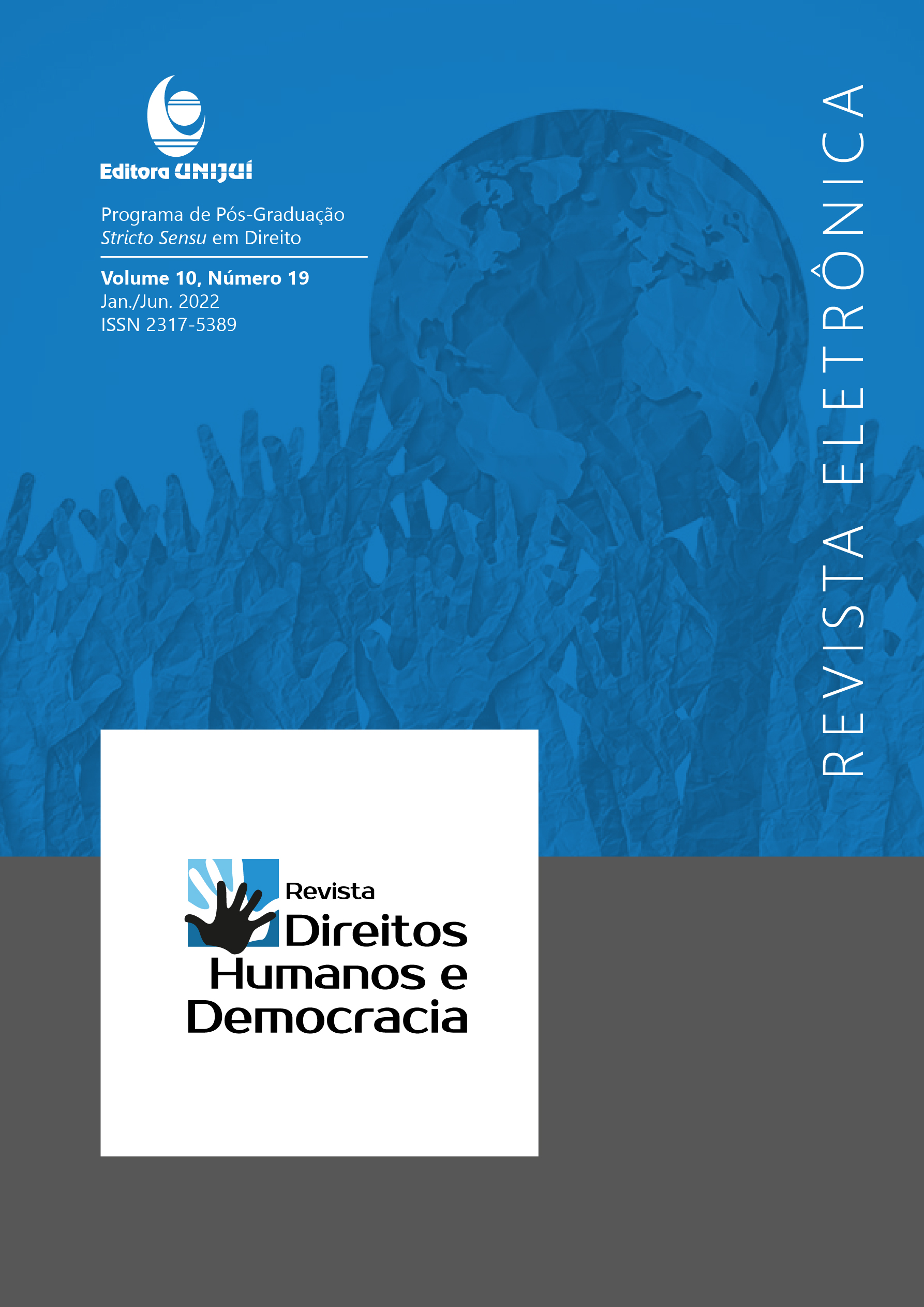Around sex and aging: the intersectional perspective, the discrimination and the challenges that the agency of the elderly GLBTI person crosses
DOI:
https://doi.org/10.21527/2317-5389.2022.19.11408Keywords:
Palavras-chave: LGBTI Idoso; Discriminação Interseccional; Direitos Humanos; Minoria Vulnerável., Keywords: Elderly GLBTI; Intersectional Discrimination; Human Rights; Vulnerable Minority.Abstract
ABSTRACT: This essay, of sociological and juridical nature, proposes to analyze the contributions that the intersectional perspective and the human rights of the minorities can offer to the comprehension around the specific factors of discrimination that the elderly GLBTI person crosses, with emphasis in the processes of subjugation in the constructions and social roles of gender, of sexuality and of aging and in the challenges relative to the effective protection of this group. It uses the qualitative research, having a descriptive and an analytical content, and will be used the bibliographic analysis. In the first part, the elderly GLBTI is investigated, seen as a vulnerable minority, and is done a reflection about the emergence and the contributions of the intersectional thinking in order to establish, in addition, possible contact points between the intersectionality and the queer and decolonial theories. The development evolves to approach the specificities and the challenges set by the intersectional discrimination suffered by elderly GLBTI person, which stimulate to look at the subject from the cosmologies that compose him. Finally, with focus in the Inter-American System of Human Rights, the insufficiency of instruments of international protection will be approached as a challenge to the effective protection of human rights of this specific minority.
Keywords: Elderly GLBTI; Intersectional Discrimination; Human Rights; Vulnerable Minority.
Downloads
Published
How to Cite
Issue
Section
License
Copyright (c) 2022 Revista Direitos Humanos e Democracia

This work is licensed under a Creative Commons Attribution 4.0 International License.
By publishing in the Revista Direitos Humanos e Democracia, authors agree to the following terms:
Articles are licensed under the Creative Commons Atribuição 4.0 Internacional (CC BY 4.0), which allows:
Share — copy and redistribute the material in any medium or format;
Adapt — remix, transform, and build upon the material for any purpose, including commercial use.
These permissions are irrevocable, provided the following terms are respected:
Attribution — authors must be properly credited, with a link to the license and indication of any modifications made;
No additional restrictions — no legal or technological measures may be applied that restrict the use permitted by the license.
Notices:
The license does not apply to elements in the public domain or covered by legal exceptions.
The license does not grant all rights required for specific uses (e.g., image rights, privacy, or moral rights).
The journal is not responsible for opinions expressed in the articles, which remain the sole responsibility of the authors. The Editor, with the support of the Editorial Committee, reserves the right to suggest or request modifications when necessary.
Only original scientific articles presenting research results of interest, not previously published or simultaneously submitted to another journal with the same purpose, will be accepted.
References to trademarks or specific products are intended solely for identification purposes and do not imply any promotional endorsement by the authors or the journal.
License Agreement: Authors retain copyright over their articles and grant the Revista Direitos Humanos e Democracia the right of first publication.













